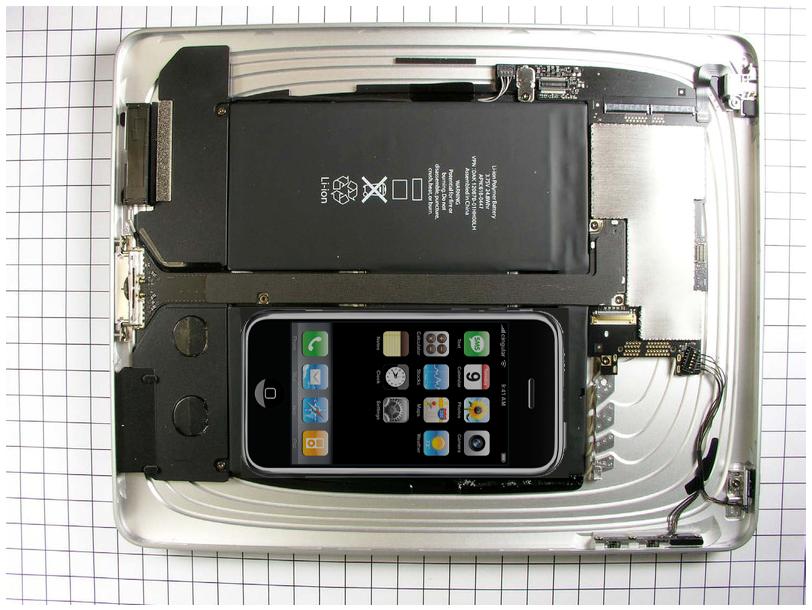Will our gadgets ever really converge?
Yo dawg, I heard you like e-mail, so we put e-mail on your Macbook, iPhone, iPod Touch and iPad, so you can e-mail while you e-mail! Substitute the word e-mail with, music, movies, chat, e-reading, calling and video recording, and the meme would still work in most cases. While right now the Ipad isn’t equiped with a camera, other tablets like the Samsung Galaxy Tablet do support this. Rumor has it, it won’t take long before the iPad follows in their footsteps.

It is only in the nature of convergence culture as described by Henry Jenkins that content will become more and more crossmedia. Ofcourse every different piece of hardware needs apps, something the fanbase is eager to cater for. Moreover, it is not as though consumers only buy an iPhone and are done with their collection after that, even though on a rudimentary level they are capable of the same things. All these expensive devices are battling for our attention. Apple’s products have become part of an actual collection. “Collect them all, complete your collection by buying our latest magical shiny device. It will make your life so much better than our last” Unfortunately, the magical shiny devices keep piling up.
So it doesn’t look like we’re heading to the old idea of technological convergence as one black box in the living room which can do everything anytime soon. Instead the launch of the Ipad only confirms that Jenkins ideas about technological convergence are right. Sure e-readers have their benefits when compared to reading from a laptop screen. But wasn’t one of those benefits that they would be easy to read outdoors just like books? Then why make an ultra glossy light emitting device?
Moreover, what is it really that e-readers actually replace? Paper? For some, for example Ted Nelson, the structure of the Internet and the word processing interface was already a remediation of paper. But ofcourse, the argument is that the tablet is so much more than an e-reader. Tablets are the future, and the iPad sure is pretty.
But do we really need this? Last time I checked browsing the web on my laptop is quite efficient, so is typing and watching movies And as long as you don’t mind the whole light emitting aspect while reading, why not read your books from your laptop screen? You can install e-reading programmes on your PC. Laptops are getting lighter and will contain more memory in the future. I can only imagine battery life will also improve. The One Laptop per Child project certainly manages to make the most of just one reasonably cheap device:
It’s peculiar that if we no longer focus on making profit, suddenly it is possible to make one device that actually does almost everything sufficiently. If we keep that in mind and think about that technology will only improve, it’s mind boggling what the possibilities could be. Not to mention all the electronic waste that it would help lessen to accumulate over time. In a way you could argue that these laptops placed in a third world environment take the place of the black box I referred to earlier. But would this work in our westernized lives? We are so caught up in our consumerism, it remains the question if this is really what we want. We kind of like our gadgets and there is always room for improvement, even if improvement only means design.
Some think it will never happen. Specialized devices will always be better at what they do, but the industry also wants and needs it to be this way. As I discussed in my bookreview about Repair, the industry needs product to break and or go out of fashion. A change in the workings of the economic industry will be difficult if not impossible, that is why the e-waste piles will keep on growing, and the consumers will keep on buying. Even if they’re not sure they actually need something. Because let’s be honest, nobody really “needs” and iPad, but I sure wouldn’t mind having one.
References:
Jenkins, Henry. Convergence Culture. New York: New York University Press, 2006.